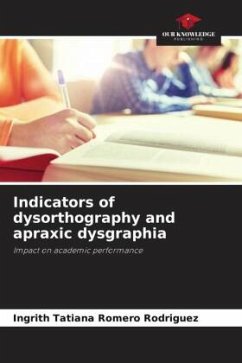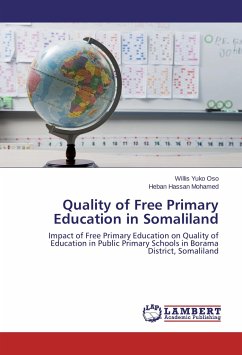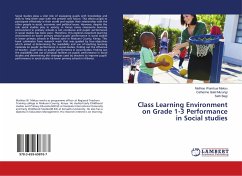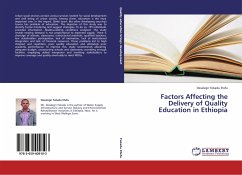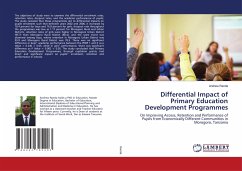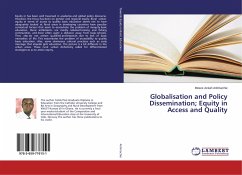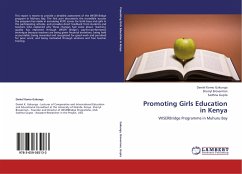
Performance Indicators and Quality of Education
A Study of Private Primary Schools in Bungoma, Kenya
Versandkostenfrei!
Versandfertig in 6-10 Tagen
32,99 €
inkl. MwSt.

PAYBACK Punkte
16 °P sammeln!
Education has long been recognized as a central factor in development. However, public supply of education is increasingly being undermined by financial constraints being faced by the governments. The private schools hire their teachers, procure learning facilities and provide education to those who can afford. The study provides the qualitative aspects of private primary schools and their effects on the pupil academic achievement. The relevance of private schools depends on the quality of education they offer. This quality can objectively be measured by performance indicators. The author exam...
Education has long been recognized as a central factor in development. However, public supply of education is increasingly being undermined by financial constraints being faced by the governments. The private schools hire their teachers, procure learning facilities and provide education to those who can afford. The study provides the qualitative aspects of private primary schools and their effects on the pupil academic achievement. The relevance of private schools depends on the quality of education they offer. This quality can objectively be measured by performance indicators. The author examines this controversial issue of relevance of private schools in Kenya. The study demonstrates that the performance of private schools in Kenya is above average despite the many challenges the private schools face, a fact which should guide general education policy and discourse.



